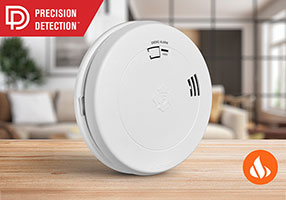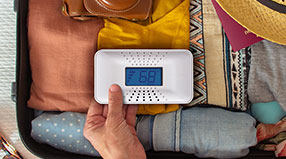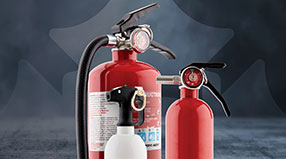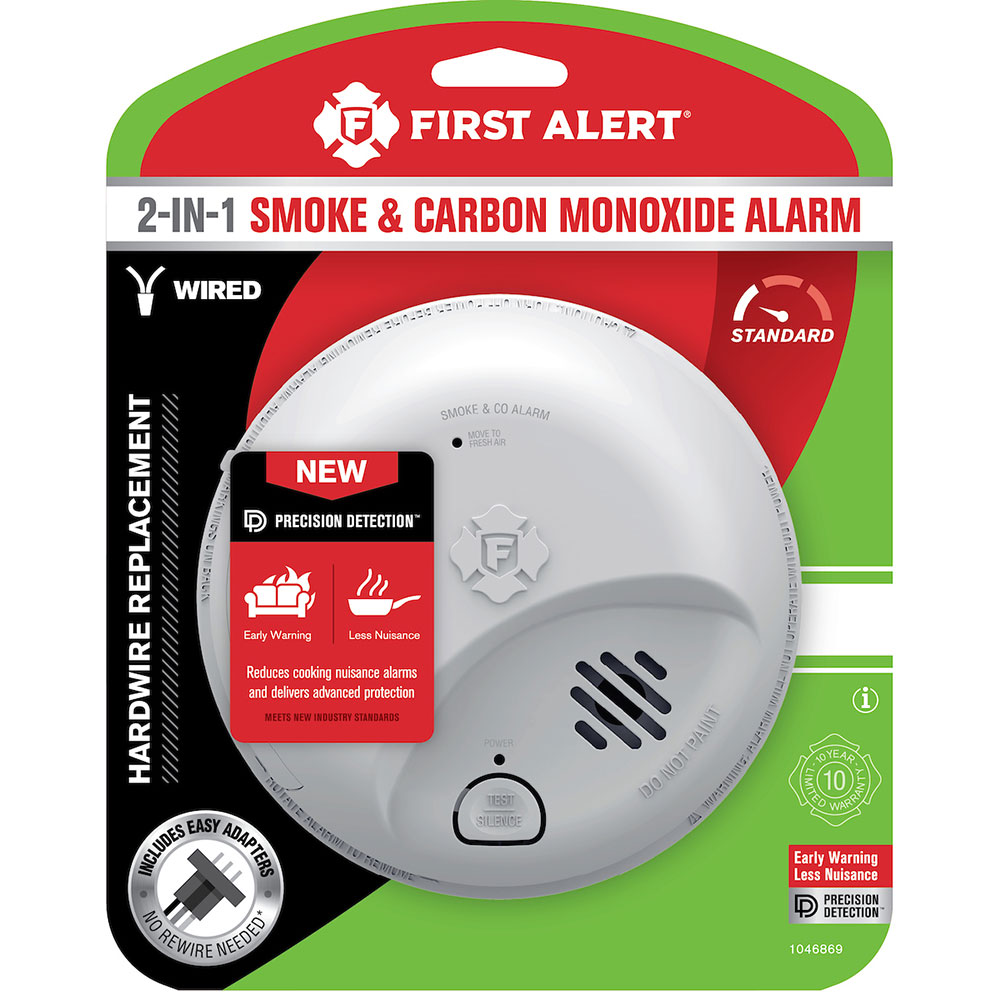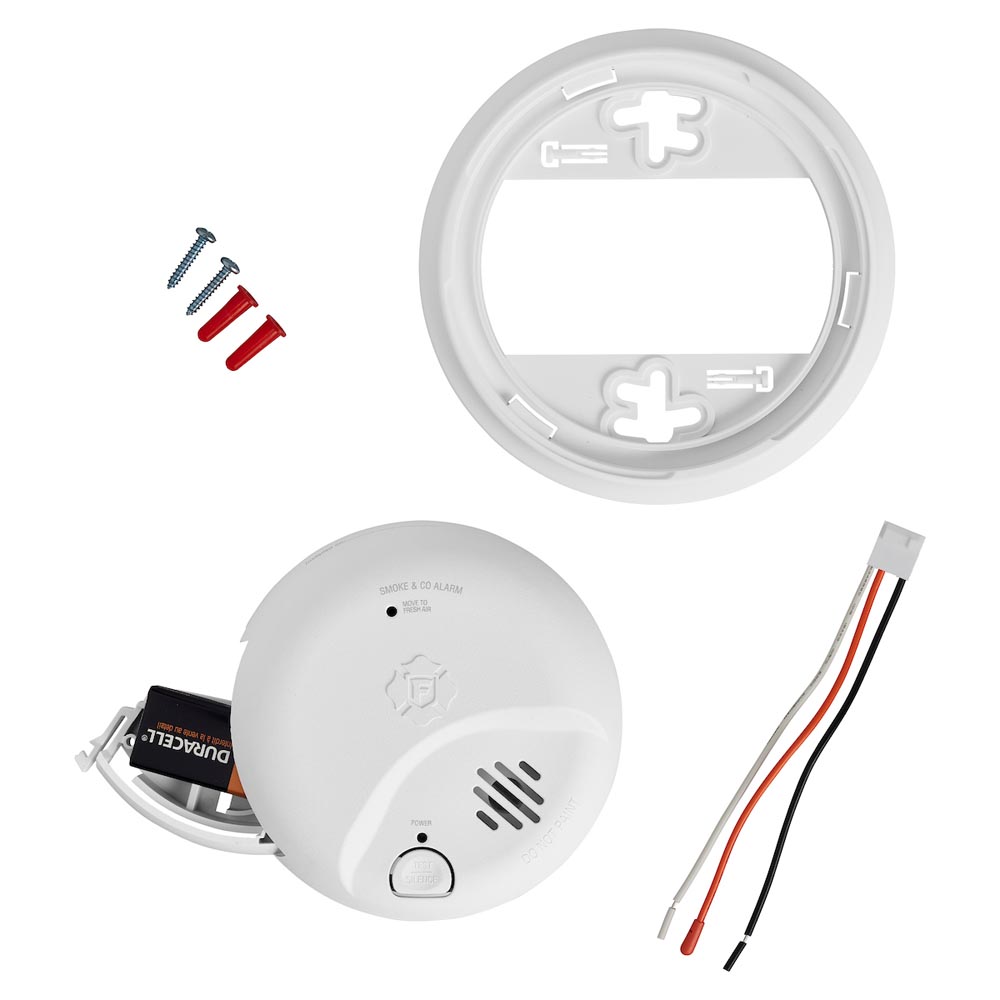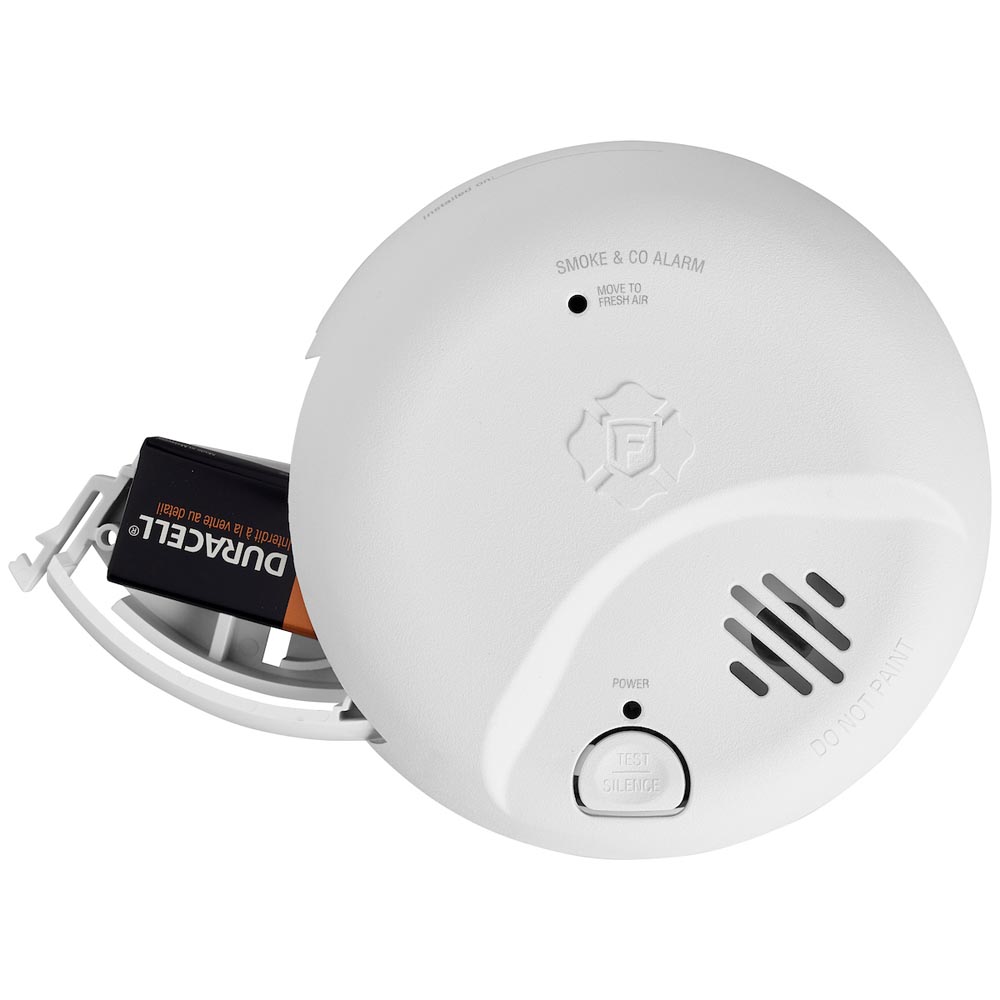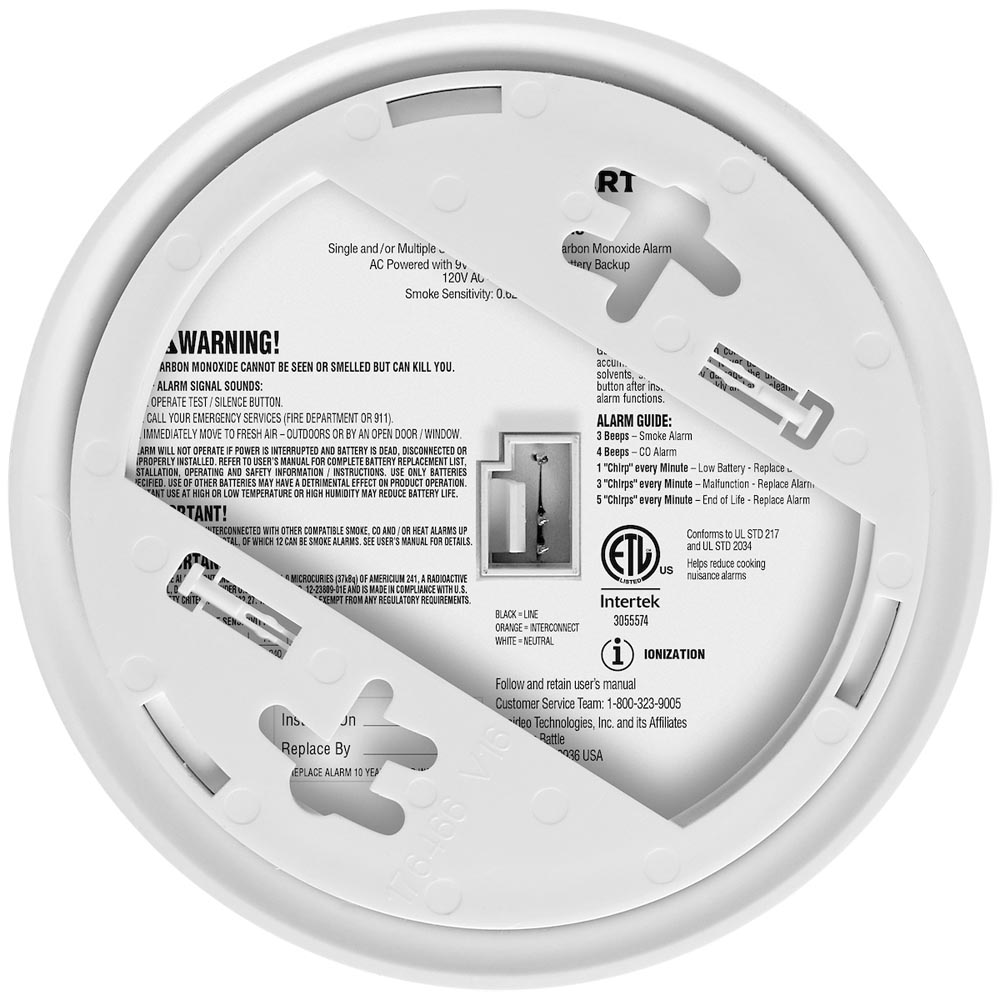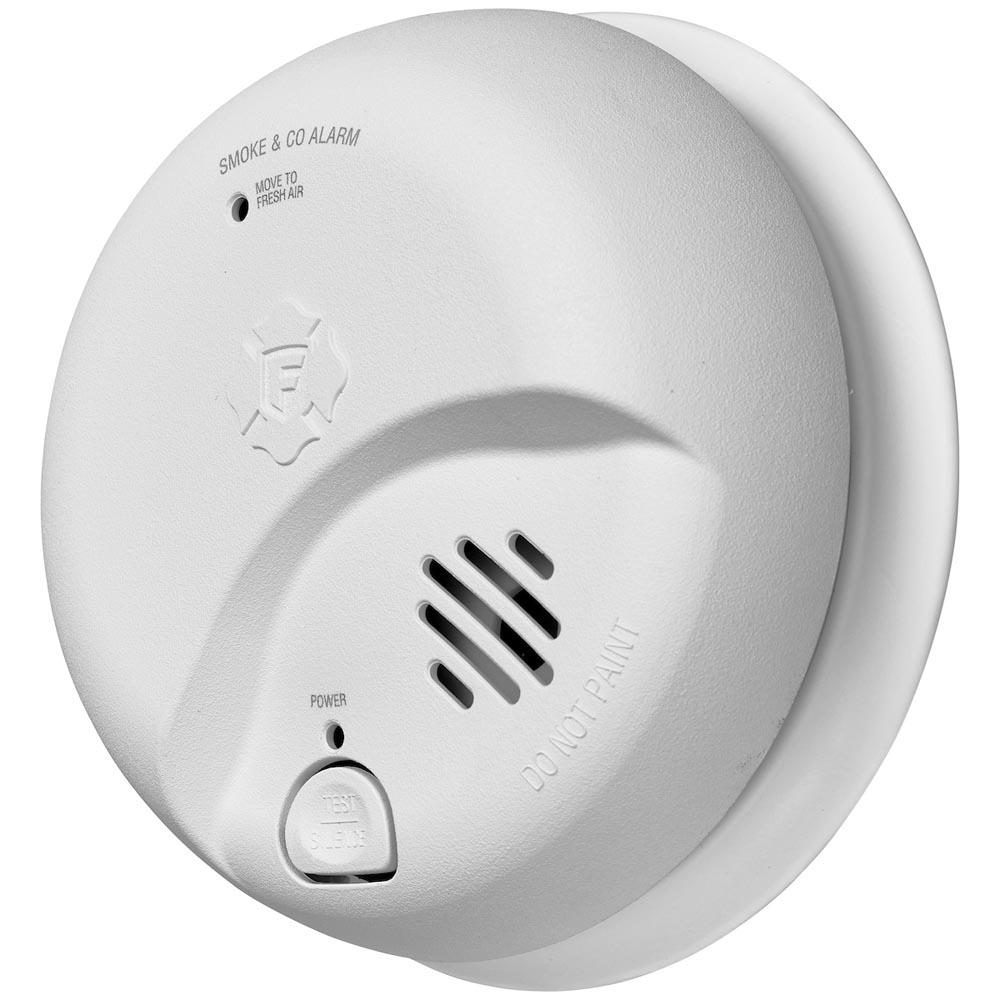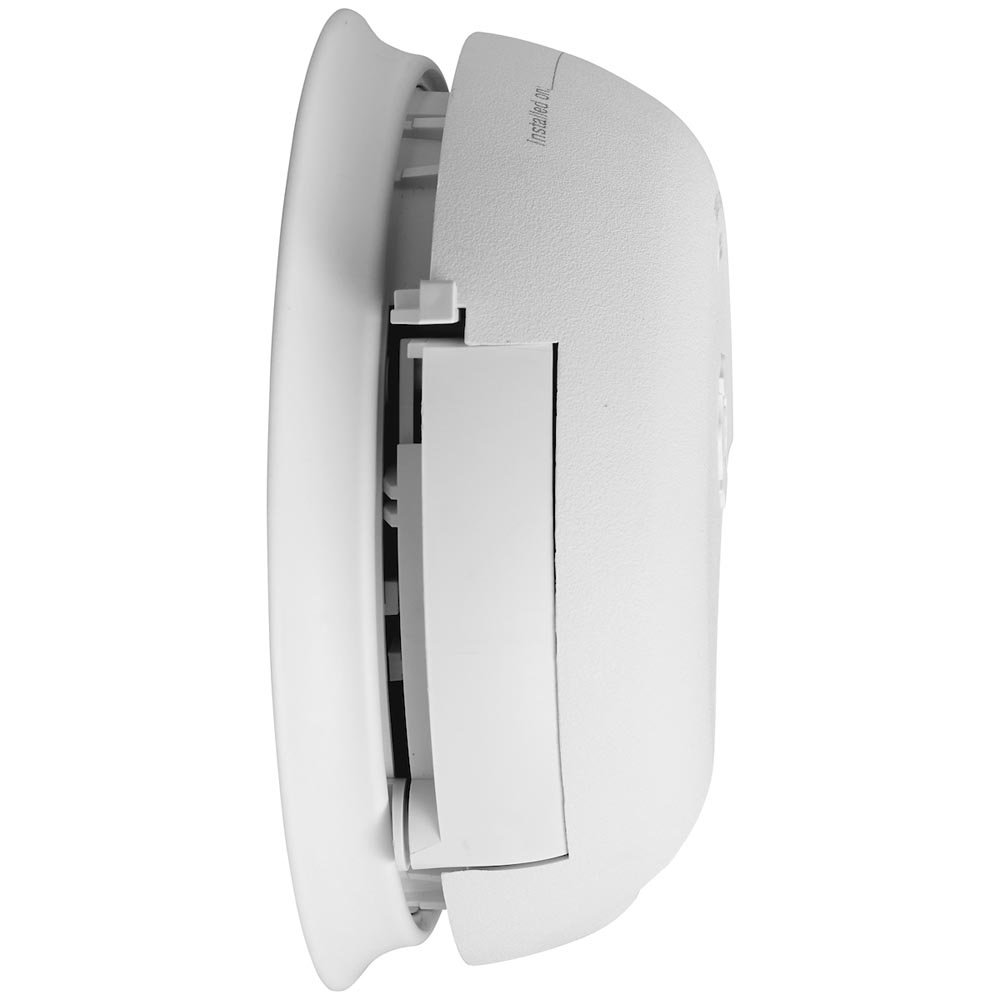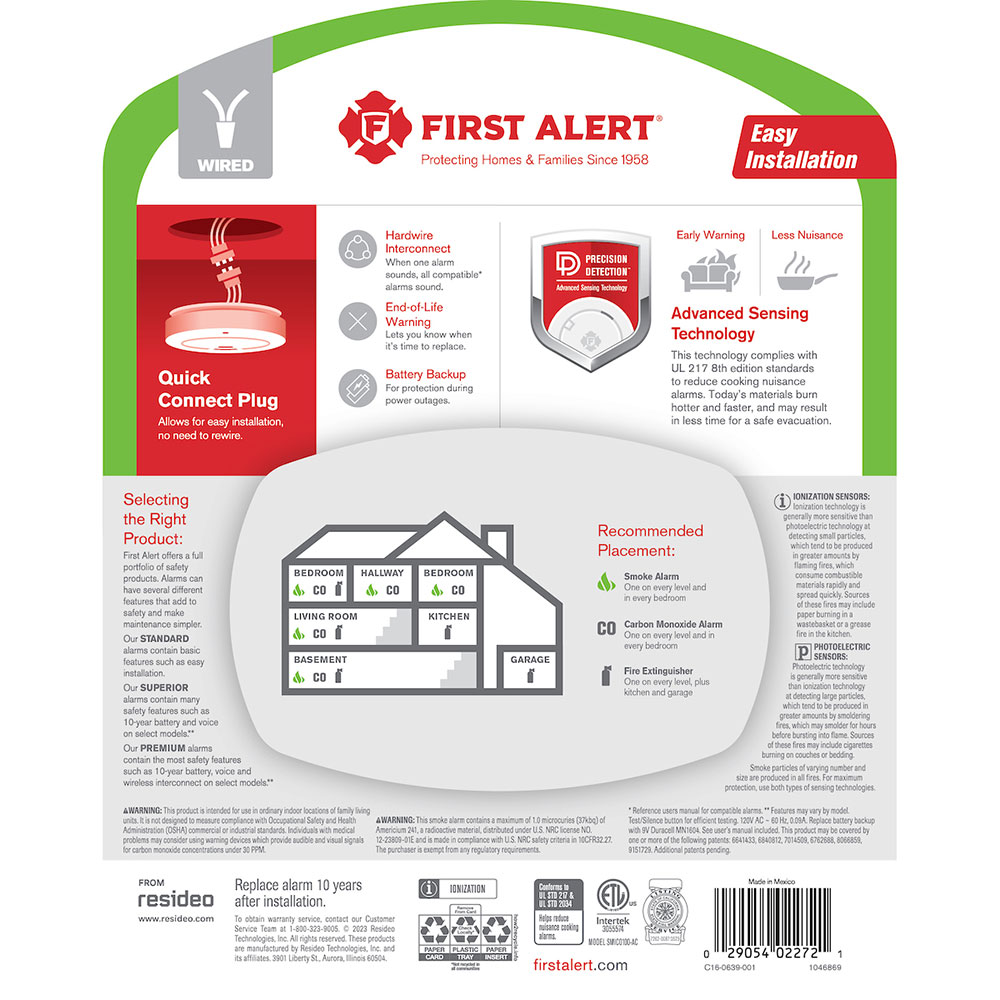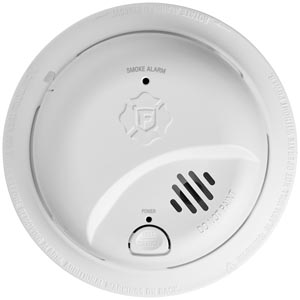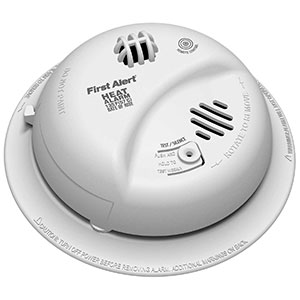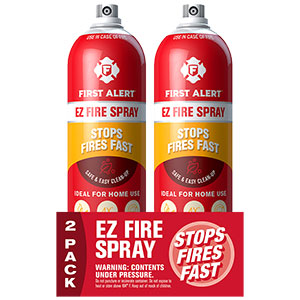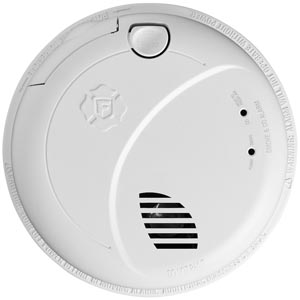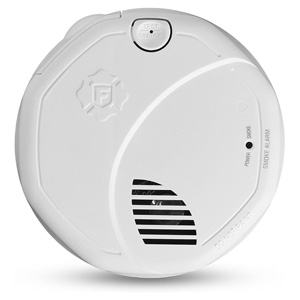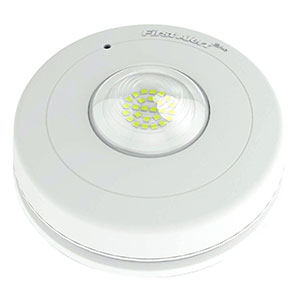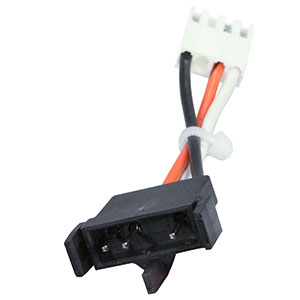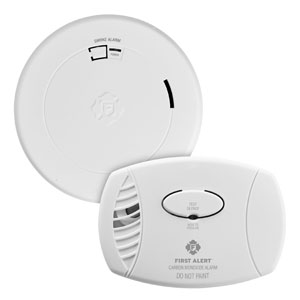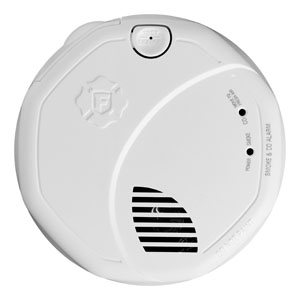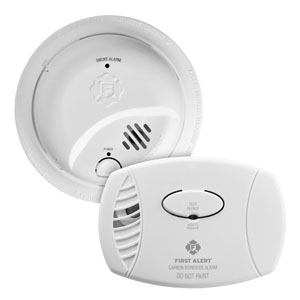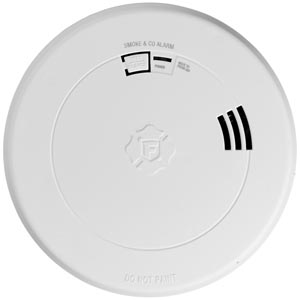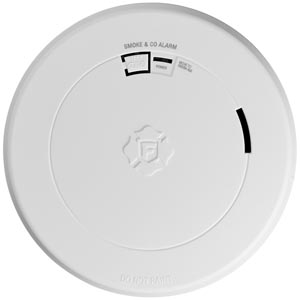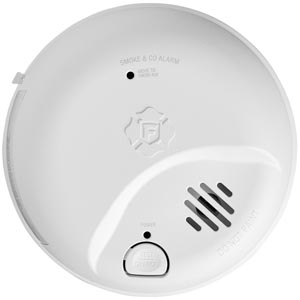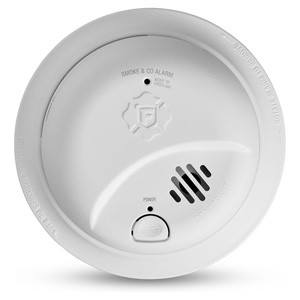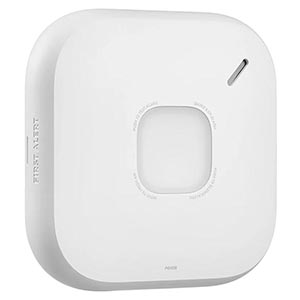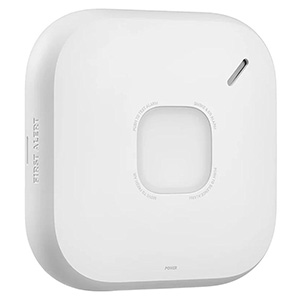First Alert Precision Detection Interconnect Hardwired 2-in-1 Smoke and CO Alarm with Battery Backup - SMICO100-AC (1046874)
- Complies with new industry standards to reduce cooking nuisance alarms and provides early warning in the event of a home fire emergency.
- Through early warning interconnect, when one alarm sounds, all compatible alarms will sound
- Quick Connect Plug allows for easy installation with no need to rewire
- Battery backup provides continuous protection during power outages
- Test/silence button for efficient testing to ensure detector is working properly
- End-of-life warning lets you know when it’s time to replace the alarm
-
First Alert 8th Generation Detector meets the latest industry standards.
Interconnect Hardwired Smoke and CO Alarm with Battery Backup
The SMICO100-AC Interconnect Hardwired 2-in-1 Smoke and CO Alarm with Battery Backup utilizes First Alert's Precision Detection technology and meets the latest industry standards. Easily install and interconnect multiple detectors together to create an alarm system throughout your home.
Early Warning Interconnect
Install this hardwired smoke and CO detector as a single alarm or interconnect multiple together to create an alarm system throughout your home. All connected alarms will sound when one in the series is alerted to help provide an early warning. Integrate with up to 12 other First Alert or BRK alarms and 6 other compatible devices. Please reference user's manual for compatible detectors. If the detector system sounds, the latching alarm indicator will visually identify the device that initiated the alarm.
Quick Connect Plug for Easy Install
The SMICO100-AC Interconnect Hardwired 2-in-1 Smoke and CO Alarm with Battery Backup includes an adapter plug that allows for easy installation. This can also be used for replacing existing hardwire alarms. The 8th generation alarm is also equipped with a battery back to provide continuous protection during power outages. Help stop unwanted removal of the detector or backup battery using the optional locking features.
Easy to Use Safety Features
Ensure the hardwired combination alarm is working properly using the single test/silence button located on the front of the device. A low battery warning will let you know when it's time to replace the backup battery and an end-of-life warning will let you know when it's time to replace the detector completely. See user's manual for information on how and when to test and replace 8th generation detectors.
Upgrade to 8th Generation Alarms
First Alert's Precision Detection Advanced Sensing Technology meets the latest safety standards set by UL 217 8th Edition. This means this combination alarm is better at distinguishing between harmless cooking smoke and real fires. Additionally, 8th edition alarms can detect smoke from burning synthetic materials, which are common in modern homes. This translates to fewer bothersome false alarms and a crucial early warning in case of a fire emergency.
First Alert Interconnect Hardwired Smoke and CO Alarm SMICO100-AC
Recommended replacement for the following model:
SC9120B
How to Install First Alert SMICO100-AC Precision Detect Hardwired Smoke & CO Alarms:
In this guide, we'll be showing you how to install First Alert Hardwired Smoke and Carbon Monoxide Alarms. Here are a few items you'll need before starting the installation process: Needle-nose pliers or utility knife, screwdriver, wire stripper, wire nuts and a ladder.
Hardwired Smoke or Carbon Monoxide Alarm Requirements:
- 120V household electrical circuit (unswitched 120VAC)
- Standard wiring junction box to a 4 in. (10 cm) size, on either the ceiling or wall
- Selecting an appropriate location to install your smoke and carbon monoxide alarms (see below guidelines for additional information):
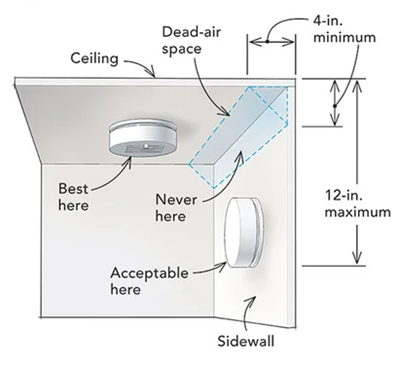
- When installing an alarm on the wall, the top edge of an alarm should be placed between 4 in. (100 mm) and 12 in. (300 mm) from the wall/ceiling line.
- When installing an alarm on the ceiling, place the alarm as close to the center as possible.
- In either case, install the alarm at least 4 in. (100 mm) from where the wall and ceiling meet.
- First Alert Smoke Alarm FAQs
- First Alert Carbon Monoxide Alarm FAQs
Connecting First Alert Hardwired Alarms to 120V Wiring
To begin, turn off power at the junction box and connect your alarm to the building's electrical wiring.
- Locate the junction box and turn off power
- Remove the power connector from the new alarm's packaging
- Using wire nuts, attach the hot (black), neutral (white), and interconnect (orange) wires
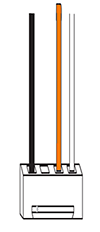
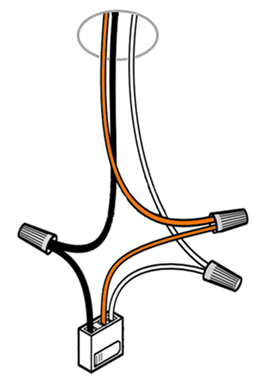
| Black wire (hot) |
Attach to black wire on power connector |
| White wire (neutral) |
Attach to white wire on power connector |
| Orange wire (interconnect) |
Standalone (single-station) alarm: This wire is not needed; tuck the orange wire into the junction box. Interconnected alarms:
|
Mounting First Alert Hardwired Alarms
- Secure the mounting bracket to the ceiling or wall using screws (included in the package)
- Insert the power connector into the plug on the back of your alarm
- Tuck any hanging wires into the junction box
- Position the base of the alarm onto the bracket and turn it clockwise until it's secured
- Remove the pull-tab to activate the backup battery
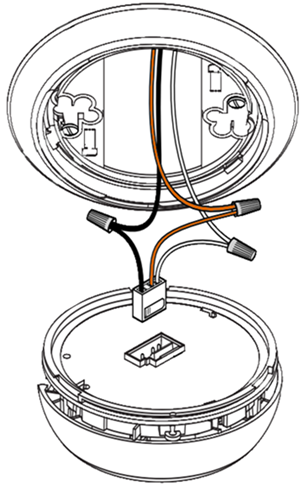
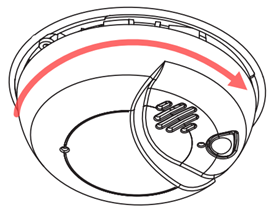
Installing Additional and/or Interconnecting First Alert Hardwired Alarms
If you are installing more smoke or carbon monoxide alarms, you'll want to repeat the process throughout the building. Interconnected smoke and co alarms must meet all requirements:
-
The same fuse or circuit breaker must power all interconnected alarms.
-
Up to 18 compatible detectors can interconnect, with a limit of 12 smoke alarms.
-
The total length of wire interconnecting the alarms should be less than 1,000 ft. (300 meters). This type of wire is commonly available at hardware and electrical supply stores.
-
All wiring must conform to all local electrical codes and NFPA 70 (NEC). Refer to NFPA 72, NFPA 101, and your local building code for more information.
-
Interconnect wiring diagram:
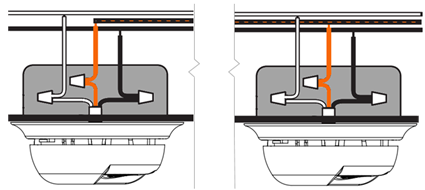
If you have any doubts or reservations about these interconnect requirements, please contact an experienced electrician to install your wiring and hardwired alarms.
Restoring Power and Testing Hardwired Alarms
Once you've installed your hardwired alarms, you'll want to restore power to the junction box. Under regular operation, the power indicator light on the alarm will shine/blink to indicate that it is receiving AC power.
Here's how you can test standalone or interconnected alarms:
-
Standalone Alarms: Press and hold the Test/Silence button until the unit triggers an alarm.
-
Interconnected Alarms: Press and hold the Test/Silence button until the first unit triggers an alarm. All interconnected detectors should sound off. Repeat this process to test each alarm in the interconnected series.
UL Solutions has updated its smoke alarm standards requiring smoke alarm manufacturers to meet new requirements by June 30th, 2024, to reduce nuisance alarms and detect smoke from synthetic materials. This update is known as UL 217 8th Edition and helps to improve fire protection for modern homes. As a leader and the most trusted brand in fire safety*, First Alert has introduced Precision Detection advanced sensing technology to meet new UL 217 8th Edition industry standards. First Alert Precision Detection Smoke Detectors and Combination Smoke and Carbon Monoxide Alarms are available for online purchase at the First Alert Store.
*First Alert Brand Trust Survey, March 2023 – Results are based on the responses of 1,043 adult homeowners, ages 25 and older, living in the United States who completed an online survey asking them to choose from six brands in the smoke, fire and carbon monoxide protection space.
Smoke alarms can beep for to the following reasons:
- Low Battery: This is the most common cause. Most smoke detectors use a chirping sound (usually a single beep every 30-60 seconds) to warn you that the batteries are running low and need to be replaced. Don't wait until the alarm is silent - replace the batteries right away to ensure your smoke alarm continues to function properly.
- End of Life: Smoke alarms don't last forever. If your smoke detector is beeping constantly or in a different pattern than the low battery chirp, it may be nearing the end of its intended lifespan and should be replaced altogether.
- UL Certifications: UL 217 8th Edition & UL 2034 4th Edition
- Sensor Type: Electrochemical and Ionization
- Power Source: Hardwired
- Number of Batteries: 1
- Battery Replaceable: Yes
- Battery Backup: Yes
- Backup Battery Type: 9V Alkaline
- Hardwired Interconnectivity: Yes
- Sound Level: 85dB at 10 ft.
- Replaces Model: SC9120B
- Warranty: 10 Year Limited
- Product Dimensions (LxWxH): 5.6 x 1.9 x 5.6 in.
- Product Weight: .7 lbs.
If you are interested in ordering a large quantity of items you may qualify for volume pricing discounts. Volume Discount Pricing is a great way for customers to save big on large, bulk orders of most items available in our store. Please send a bulk order request to our friendly sales staff so they may create a quote and provide personal service for your order! You will receive a response within 1-2 business days and our office hours are Monday through Friday, 8am-5pm CST.
- Let us know what products & the quantities you are interested in.
- Get a detailed quote from a dedicated sales rep.
- Our warehouse ships directly to you.
- You enjoy the savings & are now a preferred customer.
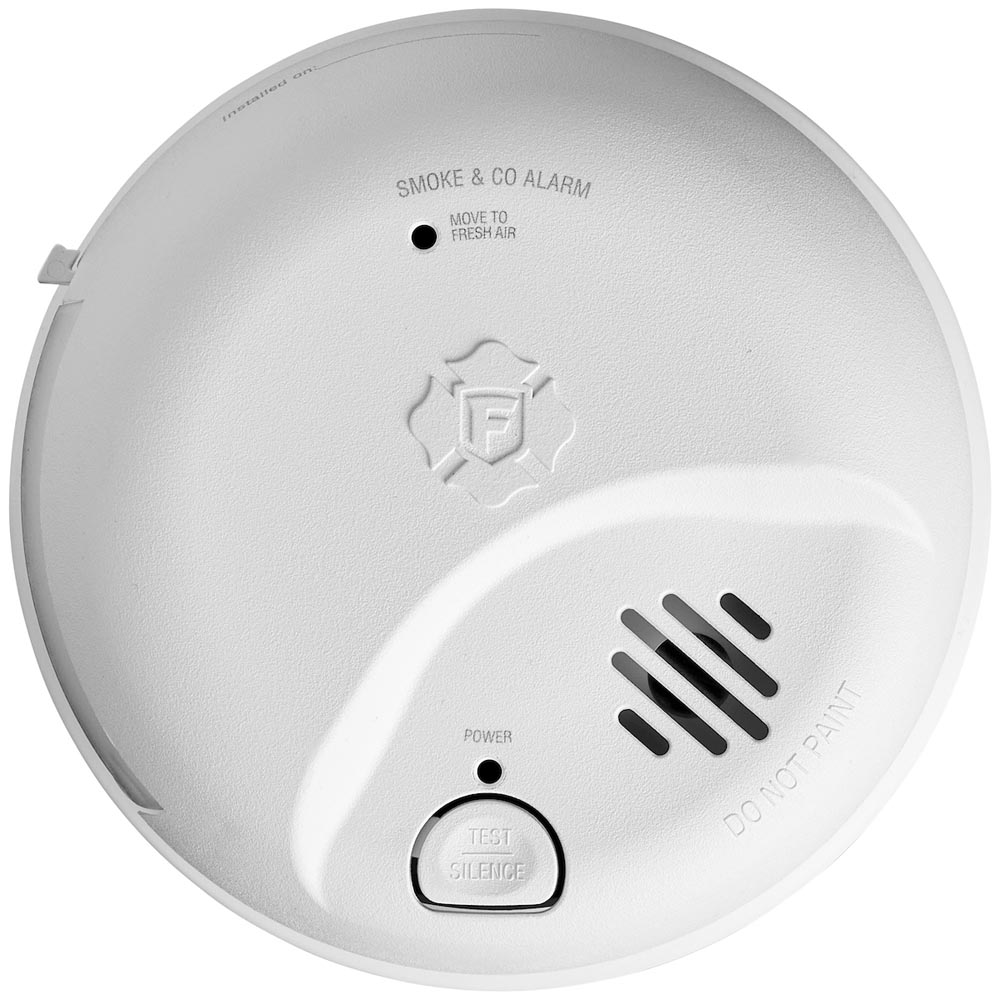
Precision Detection Interconnect Hardwire Smoke and CO Alarm with Battery Backup Reviews
It is an exactly what I will need. Have not replaced old one yet as it still has some life in it. Glad I have the replacement now.

